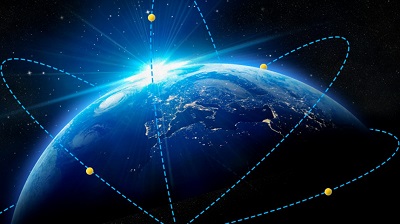Chennai, (Samajweekly) In order to make India a geospatial hub, a public-private partnership (PPP) model could be followed whereby the private sector can build, launch and maintain earth observation satellites constellation with the Indian government being an assured customer and also funding the project, the Indian National Space Promotion and Authorisation Centre (IN-SPACe) said.
Earth observation satellites are the ones that take pictures of a specified portion of the earth and send it back for infrastructure planning, achieving sustainable goals, e-governance, weather prediction, climate monitoring, disaster preparedness & mitigation and others.
In a consultation paper, IN-SPACe said: “India has a great opportunity to become a geospatial hub. As geospatial technology is being adopted as mainstream in almost all the sectors in the country, the demand for very high and high-resolution data at frequent intervals is increasing.”
India’s geospatial economy is expected to cross Rs 63,000 crore by 2025, growing at a rate of 12.8 per cent, and to provide employment to more than 10 lakh people mainly through geospatial startups, it said.
To meet the additional requirements of the data, it is proposed to build, launch & maintain the satellite constellation, through private sector participation, IN-SPACe, the regulator for private players in the space sector, said.
“As Indian space industry is at its early stages, Government of India may become an assured customer for the data, acquired through these new constellations. Public Private Partnership (PPP) model may be followed, for funding, where the NGE (non-government enterprise) participating in building EO (earth observation) Constellation & the user Government departments may jointly fund the activity. The participating industry shall clearly mention their revenue generation model,” IN-SPACe said.
According to it, the overall requirements are prioritised and split into three major categories (a) Very high-resolution 30cm or better data (b) High resolution 1 metre data and (c) stereo data of 1 metre resolution.










